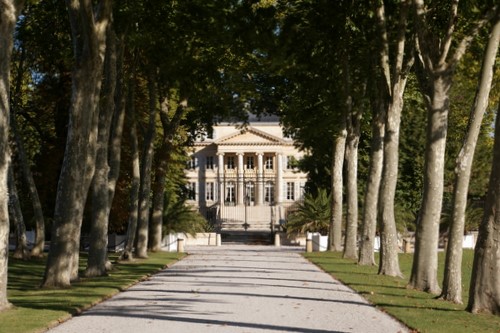It’s the time of year when, once again, the attention of the wine world is focused firmly on Bordeaux, the world’s most important fine wine region.
There are a number of reasons why Bordeaux dominates the arena of fine wine, and they aren’t all to do with the quality of the wine. A proper discussion of these would merit a long essay; here, I’m just going to make one point about the region, and this concerns the ageing potential of the wines.
Bordeaux made today is different to Bordeaux of the past.
Many argue that modern Bordeaux is better than old Bordeaux: the vinification is more controlled; the yields are lower; the vineyards more carefully maintained; the selection of the grand vin stricter.
It may be better. That’s not for me to adjudicate. But I can say that it is different.
The great old bottles of Bordeaux that we enjoy today come from a different era of Bordeaux. Even vintages as recent as 1990 and 1996 were from a previous era. They were made differently. They were probably less enjoyable in their youth. They were probably not as concentrated or alcoholic as their modern counterparts. But we like the way that these wines taste now in their maturity.
We cellar Bordeaux today confident that these bottles will age beautifully over 30 or 50 years, just as their predecessors did. Yet the wines of 2009, for example, were quite delicious as cask samples. They may well age fantastically. On the other hand, they may reach maturity at a younger age.
I think we should exercise caution when it comes to the ageing potential of modern Bordeaux. My guess is that these sleek, modern, ripe wines are not 50 year bottles. I may be wrong: the truth is, no one really knows. Hence the title of my post.
Bordeaux of today is different to Bordeaux of yesterday. Better? Maybe. Equally ageworthy? That’s a gamble. How lucky do you feel?
7 Comments on Bordeaux: past performance cannot be used to predict future performance

Agree. Maybe the modern versions also need a screwcap or glass closure to go 30-50 years? 🙂
what you’re saying is, ‘the quality of your wine can go down as well as up’.
I’ll probably be here in 30 years, but not 50, so I hope I will be able to find out the answer to your question for myself.
I tend to find that Bordeaux has almost fallen off my wine radar, in a similar way to Australian wine 10-15 years ago. But that means that when I do crack open the occasional bottle (usually quite cheap stuff in the £10-£20 range) I think “Actually, this is rather nice”.
The ageing factor does make for decent auction purchases, though.
Totally agree, in fact wrote an essay last year (based on 2009s) to that effect. We know how wines made in 1982 age after 30 years but how much has changed since then, I suspect 1990 will be different to either 82 or 96 and 96 will be different to others such has been the rate and timing of changes in winery and vineyard.
Simply put we don’t know how any of these wines will age in the long term, not do we necessarily understand their long term quality. 05, 09 &10 may end up being able to be compared against ‘modern vintages’ and 02, 89 & 90 against traditional but my feeling is that both 96 and possibly 2000 (which could end up in the group with the other recent vintages) will end up as anomalys.
But as we are discovering over the longer term 2001 may outperform 2000, will we find in 20 or 30 years that actually 2004 works better than 2005 or 2008 better than 2009 – the answer is that we don’t know, and noone does and that there is no precedent which means we ought to exercise caution in buying.
Jamie I agree with your analysis and your questions. Bordeaux is more business and pragmatically driven than, say, Burgundy. They have embrased Parkerization with wide open arms. Vineyards that were once complex yet unapproachably tannin are now sliding toward the New World ideal of “yummy when young”. Aged bottles of this stuff will, I believe, show the folly. Peace.
There is an apparent attempt among the trade to market Bordeaux 2010 as a classic-styled vintage, however, with a median 13-14%alc for the Left Bank and a whopping 14-15%alc for the Right, this would hardly seem the case.
One often wonders how, what I recall Serena Sutcliffe MW (Wine Report 2008) referring to as New Classic Wines; Pingus, Harlan, Masseto, will be in 30 years time.
However, climate change may well negate any need to consider claret in 30 years; it may be that the finest wines come from other regions.